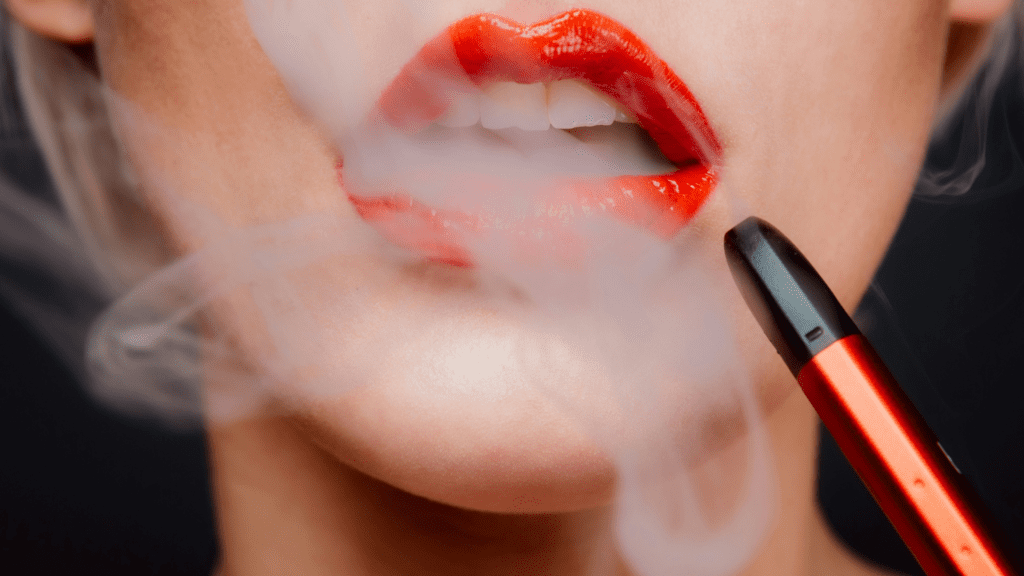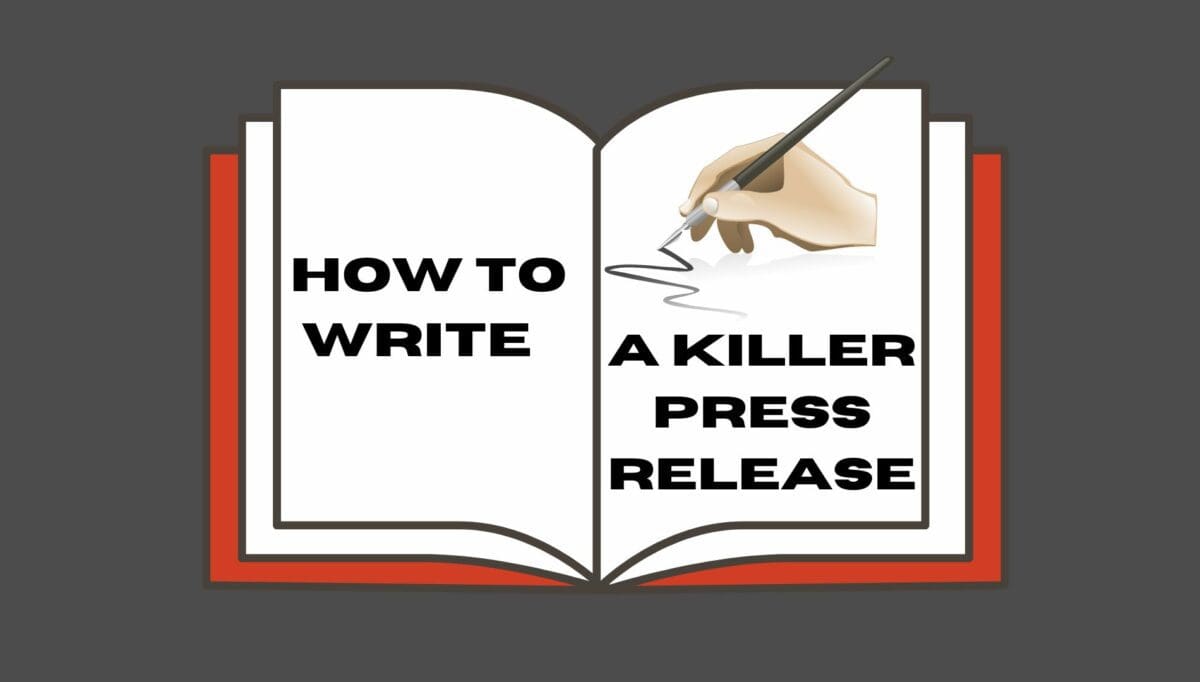
The dangers of smoking are widely understood. What about vaping? Vaping is considered a safer, less harmful alternative to traditional cigarettes and is growing more and more popular. However, is it good for a singer to vape or smoke?
Vaping and smoking will ruin your singing voice. Smoking and singing can permanently change how your voice sounds and cause serious damage to your vocals. The seriousness of vaping shouldn’t be overlooked either, as e-liquids contain hidden threats to your voice.
While we know what to eat and drink as a singer, little is known about the long-term side effects of vaping and singing – so can it really be trusted to be part of a singer’s lifestyle? This article explores what is known about vaping and the hidden dangers that e-liquids pose to your voice – for example, does vaping change your voice?
Are you releasing new music?
Book a meeting with a Music Gateway A&R today.
Discuss release strategies, distribution, growing your fanbase, organic playlisting, press, radio and more.
Is vaping and smoking bad for singing?
Smoking attacks your whole body and smoking can ruin your singing voice. The tar from cigarettes can damage your heart, skin, brain, lungs, throat, and bones. No part of your body is safe from smoking – especially not your singing voice.
Your respiratory organs are the part of your body that are affected the most by nicotine. Smoking tobacco cigarettes can have a damaging effect on your throat and lungs, coating them in tar and causing serious swelling.
This damage can have a permanent and severe impact on your voice. Heavy smoking will dry out and irritate your vocal folds and tissues, changing and restricting your singing voice.
Smoking for a prolonged period can cause a multitude of severe conditions that will impair your voice. Vocal cord nodules, laryngitis, and throat cancer can all develop from smoke inhalation.
Does smoking change your singing voice?
Smoking will severely affect your singing voice. Cigarettes won’t just change your singing voice; they can potentially damage it, too.
Smoking comes with a whole host of serious threats to your voice. The chemicals and irritants in cigarettes cause swelling in the throat and the vocal tissues which can:
- Make your voice raspy
- Make your voice scratchy and rough
- Decrease your singing range
- Cause breathiness
- Weaken your voice
- Reduce pitch and tonal accuracy
- Increase vocal fatigue
- Cause bouts of coughing during the singing
Some singers think a raspy, gravelly tone from smoking is desirable. But this raspy quality is actually a warning sign that your voice is crying out for help.
Can a singer smoke socially?
The simple answer is: no. A singer should avoid smoking at all costs; just one cigarette a week can send your vocal health into decline. Your voice is your most important instrument, so don’t let smoke eat away at the quality of your sound.
Can you smoke and still sing?
Smoking just one cigarette a day is one too many. Studies suggest that having a single cigarette a day can triple your chances of developing serious health illness like cancer, compared to someone who doesn’t smoke.
Smoking is a dangerous habit and smoking socially isn’t worth the dangerous risks that come with it. If you give up social smoking, you are 75% more likely to regain the original quality of your singing voice.
Does smoking affect vocal range?
When you smoke, your vocal cords swell up. This has been said to have an affect on your vocal range, often leading to a deeper voice and an inability to hit certain high notes can be a result. If you want a deeper voice, then smoking can help your singing, but for most people, smoking and singing should be avoided – for more than just performance reasons!
Vaping vs smoking
Vaping is often considered a less harmful alternative to traditional smoking. Regular cigarettes contain tobacco, nicotine, and tar and are a real danger to your health. They contain over 7000 chemicals that are toxic and can harm your body, especially your respiratory system and vocal health.
Vaping doesn’t expose your body to harmful substances like tar and carbon monoxide like smoking does. E-cigarettes work by heating nicotine, chemicals and flavourings to create a water vapour that can be inhaled; a much safer alternative to smoke.
Vaping is thought to be safer than smoking and has less of an effect on your voice. But research is ongoing and the long term side effects of vaping and still largely unknown.
Can vaping ruin your voice?
Vaping is thought to be less damaging to your vocals than smoking. But that doesn’t mean that vaping is complete without side effects.
E-liquids still contain nicotine which can irritate your respiratory system and hamper your voice. Studies have found that vaping, both with and without nicotine, can cause inflammation of the lungs. Not taking care of your lungs will affect your voice because you won’t be able to practice a proper breathing technique and follow breath control during your vocal.
The base liquids and flavourings that are added to e-liquids also contain potentially toxic chemicals, which can irritate the respiratory system and cause inflammation. Any irritation to the vocal folds can affect your voice because it can cause sore throats, change the sound of your voice, and limit your range and pitch.
What does vaping do to the vocal cords?
Vaping can have a serious impact on your vocal cords and shouldn’t be seen as a harmless version of smoking.
E-cigarettes may not produce smoke like traditional cigarettes, but they still emit propylene glycol (a type of stage smoke). This irritates the respiratory tract and can dehydrate and inflame the vocal cords in the same way as traditional smoking.
E-cigarette smoke can also dry out the mucus in your throat. This mucus is needed for the vocal cords to vibrate properly – without it, your voice will be strained, pitchy and hoarse.
Is a vape without nicotine bad for you?
There is still a lot of mystery surrounding the long-term effects of vaping. Research into the side effects of vaping without nicotine is ongoing, but it’s thought that nicotine-free vapes still carry health threats.
Short-term side effects of nicotine-free vaping include irritation, inflammation, and toxicity. All of these pose big threats to a singer’s health.
Ingredients in vape juice like glycol and glycerol can irritate your mouth when heated, and researchers are concerned that they contain toxic cancer-causing properties. Even without nicotine, vaping can still trigger an immune system response and cause your inflammation in your lungs and throat. These are big health concerns for singers and non-musicians alike.
What e-liquids are worst for singers?
Paying attention to the ingredients in your e-liquids can help limit the side effects on your voice. Some vaping ingredients are known to be irritants, and these will inflame your vocals. According to Healthline, the ingredients to avoid include:
- acetoin
- acetyl propionyl
- acrolein
- acrylamide
- acrylonitrile
- benzaldehyde
- cinnamaldehyde
- citral
- crotonaldehyde
- diacetyl
- ethylvanillin
- eucalyptol
- formaldehyde
- o-vanillin
- pentanedione (2,3-pentanedione)
- propylene oxide
- pulegone
- vanillin
How flavoured vapes affect the voice
There are so many vaping flavours to choose from. But research indicates that some flavours contain harmful chemicals and can irritate your respiratory system – a threat to your singing voice. As a singer, health services recommend you avoid these irritant flavours:
- almond
- bread
- burnt
- berry
- camphor
- caramel
- chocolate
- cinnamon
- clove
- coffee
- cotton candy
- creamy
- fruity
- herbal
- jam
- nutty
- pineapple
- powdery
- red hot
- spicy
- sweet
- thyme
- tomato
- tropical
- vanilla
- woody
Can vaping cause laryngitis?
Laryngitis can affect anyone and has multiple different causes. But if you’re a smoker or a vaper, your risk of contracting laryngitis is dramatically increased.
Laryngitis is caused by the inflammation of the vocal cords. The cords swell and this causes voice distortion, hoarseness, and loss of voice and can last as long as three weeks in chronic cases. Laryngitis can be triggered by smoke, tobacco fumes and chemical irritation – components that are all linked to smoking and vaping.
Vaping allows chemicals to enter your airways, causing your vocal folds to become irritated. This inflames the larynx and can turn into laryngitis if you vape persistently.
Can a smoker’s voice go away?
A smoker’s voice is the name given to the change in your voice from smoking. Heavy smoking can change the sound of your voice, leaving it hoarse and deep – a “smoker’s voice”.
Curing your smoker’s voice will depend on how bad the damage is. The sound of your voice changes because your vocal cords have become dry and inflamed from the smoke inhalation. The one, simple way to remedy a smoker’s voice is to quit smoking immediately.
If the damage to your larynx is mild, your voice will return to normal if you quit smoking and drink plenty of water to bring moisture back to your vocal cords. But if the damage is more severe, your smoker’s voice may not be so easily cured. It could indicate a more serious issue – like polyps or lesions – and you should contact your doctor.
Does Juuling affect singing?
Juuling is essentially another term for vaping. The term came about after the Juul e-cigarette, a small vaping device that looks like a USB stick, become popular. Juuling may be popular, but it has hidden threats to your health and voice.
Juuling bears all the same risks to your singing voice as vaping with other e-cigarettes– if not more. The flavoured e-juices contain potentially toxic chemicals that inflame and impair your voice box.
Juul cartridges also have incredibly high nicotine content. One Juul pod (which lasts for 200 puffs) is reported to contain as much nicotine as a full pack of cigarettes. Nicotine is highly addictive and won’t just impair your voice, but will affect other aspects of your day-to-day life.
What is the worst thing to smoke?
According to health columnist Ian Lecklitner, the worst things to smoke due to their effects on health are:
- Hookahs
- Cigarettes
- Pipes
- Cigars
- E-cigarettes
How to reverse the effects of vaping
It’s much easier to prevent damage to your voice than to reverse it. If you don’t want to harm your singing voice, the best option is to avoid vaping altogether.
Quitting vaping for good will give your voice a fighting chance of recovering from the harmful side effects. But if you choose to continue vaping, you can minimise the effects by:
- Avoiding certain ingredients
- Avoiding certain e-liquid flavours
- Drinking water after vaping to cancel out the dehydrating effect
- Try nicotine-free e-juice
How to recover your voice from smoking
If you quit smoking as soon as possible, you might be able to reverse the effects that smoking had on your throat and lungs. It may take up to nine months for the healing process to begin, but your voice can recover with the right remedies:
- Set up a humidifier at home to keep moisture in the air
- Stay hydrated and drink plenty of clear fluids
- Infuse basil, ginger or cumin seeds with water and gargle
- Drink warm herbal teas with honey
- Exercise regularly to improve your breathing habits
- Avoid oily foods and dairy to reduce the mucus in your throat
Frequently asked questions
- Is vaping bad for your health?
Nicotine is the main agent in e-cigarettes, like in tobacco cigarettes. Nicotine is highly addictive and a toxic substance. It can be detrimental to your health whether you vape or smoke it.
Nicotine can affect your blood pressure, heart, hormones and gastrointestinal system. If you vape for a prolonged period of time, the exposure to nicotine can increase your risk of blood clots, strokes and can damage your organs.
The long-term side effects of vaping are still widely unknown. Vaping may offer a safer alternative to smoking, but its chemical ingredients shouldn’t be overlooked.
- How do I quit vaping?
Quitting vaping and smoking altogether is the best thing you can do for your health.
Nicotine addiction is 99% mental, so it can be just as difficult to quit vaping as it is to stop smoking. But it is possible. Slowly weaning yourself off of vaping and gradually reducing the nicotine content of your e-liquids is a trailed and tested method for quitting.
Try slowly lowering your e-liquid consumption too. This is advised over quitting cold turkey as it reduces the severity of withdrawal symptoms.
The withdrawal symptoms when quitting vaping are largely mild and hit after 1-3 days. It’s recommended that you don’t try substitutes like patches and nasal sprays as they will feed the nicotine addiction.
Smoking kills your singing voice
Vaping and smoking pose serious risks to your health. Even one cigarette a week can eat away at the quality of your singing voice. If you don’t want to risk damaging your singing voice, avoid smoking in any shape or form.









